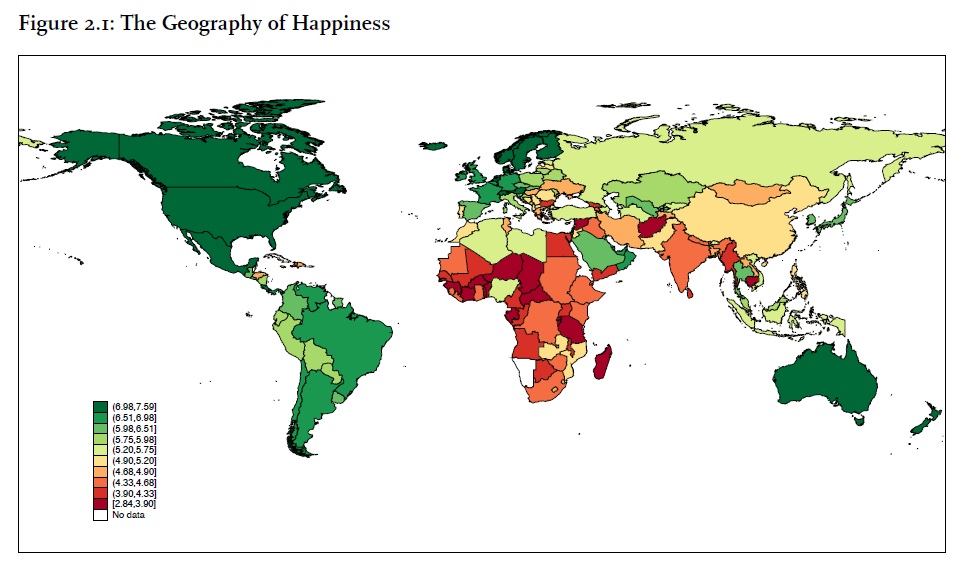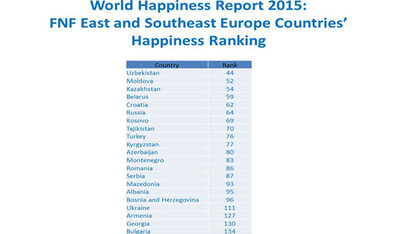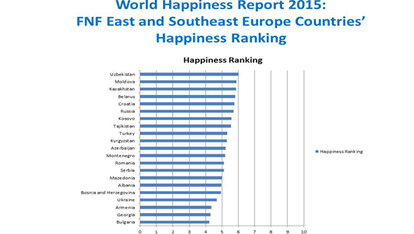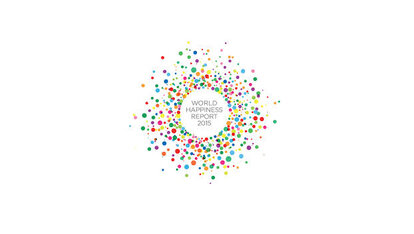World Happiness Report 2015 –How happy are the people of East & Southeast Europe

When I opened my tablet this morning, I came across the new edition of the World Happiness Report. Always eager to learn about my new region, the countries in it and how people see the world, I scrolled with great excitement through the list of 158 countries and territories. What are my main impressions? Well, the good news is that there is a great deal of consistency in the way people rate their happiness over the years. The overall gap between the top-10 and the bottom-10 countries, which is the difference between the happiest and the unhappiest people, is only 4.748. Switzerland and its people remain the happiest in the world, whereas Togo has the unhappiest people on earth. The top 10 are dominated by Nordic countries (Iceland, Denmark, Norway, Finland and Sweden) plus the Netherlands as well as some countries from the Anglo-Saxon world (Canada, New Zealand and Australia). The bottom 10 countries comprise war-torn Syria and Afghanistan, and mostly African countries.
How is the situation in East and Southeast Europe? You might not guess which the happiest place in that region is. Well, surprise, surprise, it is Uzbekistan (44 overall) followed by Moldova (52 overall) and Kazakhstan (54 overall).

The first EU member state is Croatia (rank 5 and 62 overall). We joked in the office (Bulgarians and Germans), which country would come last in our region. My Bulgarian colleagues had the right instincts: Bulgarian people are the unhappiest in the region (rank 134 out of 158).

It is worth looking at the different components of happiness, if one compares the different countries. The index includes seven components:
- GDP per capita
- Social support
- Healthy life expectancy
- Freedom to make life choices
- Generosity
- Perception of corruption
- Dystopia + residual
Not in all cases is income the most important factor for happiness. In some cases, the presence and/or absence of corruption is of great importance. There seems to be no direct correlation between happiness and the form of government. Just because people live in a democracy (Georgia, Bulgaria, etc.) does not make them happier than people living in a dictatorship and/or autocracy (Belarus, Russia, etc.). Could this be a result of the dominant perception that there is freedom to make life choices? This might be an interesting question to pursue.
Check out the report and draw your own conclusions: http://worldhappiness.report/
